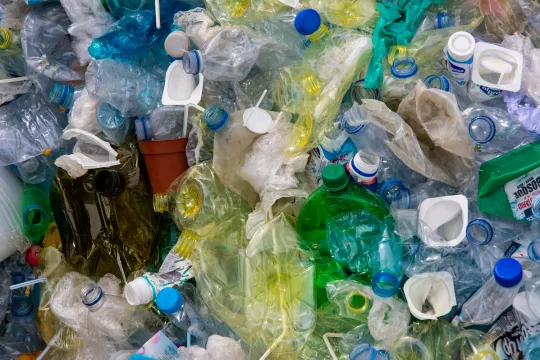Active banners: 0 Visible banners: 0
Can Chemical Recycling Solve the Challenges of Plastic Recycling?
Provided by: PBS NewsHour |Published on: April 27, 2021
Videos
6789101112
Synopsis
- This video details the traditional problems with recycling plastic and provides information on new chemical recycling technology that has the potential to revolutionize the way plastic can be broken down.
- It also provides a brief and engaging introduction to the burgeoning field of chemical recycling, while reiterating the fact that recycling alone will not be enough to eliminate plastic waste.
- Students will see a recycling plant in Madison and hear from researchers at the University of Wisconsin.

Subjects: Chemistry, Engineering
Authors: PBS NewsHour
Region: Global, WI - Capital (CESA 2)
Languages: English
Teaching Materials
Positives
- The video shows footage of recycling facilities and provides an abundance of data and statistics.
- Students will get to see innovation in action as researchers talk about their progress with chemical recycling.
Prerequisites
- The concept of urban mining is introduced, but it is not defined in the video.
- Students should be familiar with terms such as polymer, virgin plastic, and solvent.
Differentiation & Implementation
- Chemistry classes can use this video to discuss the kinds of chemical reactions that occur during chemical recycling processes.
- Economics classes can discuss the economic impetus for corporations such as SABIC to develop chemical recycling plants.
- Science classes can collect single use plastic trash and then determine what percentage of the trash can be easily recycled and what percentage is likely to end up in a landfill.
- Similar resources include Plastic Pollution: How Humans Are Turning the World into Plastic, Why Plastic Pollution Is Even Worse Than You Think, and Is Recycling Still Worth It Anymore in 2021?.
Scientist Notes
Teaching Tips
Standards
Resource Type and Format
All resources can be used for your educational purposes with proper attribution to the content provider.



